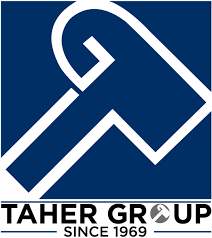Commercial, Corporate and M&A
Kuwait’s New Narcotics Law: A Modern Regulatory Framework for Public Health, Compliance, and Controlled Substances
Kuwait has entered a transformative phase in its public-health and compliance architecture with the issuance of Decree-Law No. 159 of 2025, effective December 14, 2025, a comprehensive overhaul of the narcotics, psychotropics, and chemical-precursor regime, repealing the four-decade-old 1983 and 1987 laws. The new framework modernizes Kuwait’s approach to substance control through a structured system of licensing, surveillance, treatment, data governance, and inter-agency coordination.
Although the law’s immediate focus is public health and anti-trafficking enforcement, its implications extend into healthcare, pharmaceuticals, logistics, research, compliance, risk management, and corporate governance. This impacts pharmacies, manufacturers, technology providers, and supply-chain operators. This shift aligns with Kuwait’s broader objective of building institutional systems capable of supporting the next generation of economic and social reforms.
At its core, the new regime establishes an integrated governance model, anchored in the Ministry of Health but coordinated with the Ministry of Interior, Customs, laboratories, treatment centers, and cross-border regulatory bodies. The forthcoming Executive Regulation is expected to unify these operational requirements through a detailed rulebook governing licensing, storage, electronic tracking, treatment protocols, and surveillance mechanisms.
Institutional Architecture: Ministry of Health at the Center of a Cross-Sector Control Ecosystem
The law repositions the Ministry of Health as the national authority responsible for the scientific, medical, regulatory, and oversight pillars of the framework. Under the law, the Ministry licenses all entities dealing with narcotic drugs, psychotropics, and chemical precursors; establishes central registers, quota systems, batch-tracking controls, and electronic monitoring platforms; and governs prescribing, dispensing, storage, destruction, and transport through detailed procedures to be formalized in the Executive Regulation. It further oversees rehabilitation and treatment centers, medical committees, and post-treatment monitoring systems.
The Ministry of Interior plays a parallel enforcement role, particularly with respect to smuggling, trafficking networks, digital crime, and controlled deliveries, while Customs controls cross-border flows of substances and precursors. This alignment reflects a shift toward integrated compliance governance, where medical, enforcement, and data-governance mandates intersect. The structure is designed to create a controlled, traceable ecosystem capable of preventing diversion, ensuring public safety, and supporting evidence-based health interventions.
From Policy to Implementation: Licensing, Electronic Tracking, and Supply-Chain Controls
The law introduces a comprehensive licensing and control system applicable to hospitals, pharmacies, manufacturers, warehouses, research institutions, veterinary facilities, and transport operators. Its core pillars include electronic tracking systems covering import, storage, dispensing, return, and destruction of controlled substances; batch-tracking and serialization requirements for manufacturers and warehouses; supply-chain controls over qualified transport vehicles, secure containers, GPS-enabled routes, and mandatory reporting of delays or discrepancies; real-time, Ministry-linked electronic prescriptions to eliminate fraudulent or unauthorized dispensing; and inspection rights allowing regulators to access premises, records, samples, and audit trails.
These measures mirror international best practices and reflect a deliberate move toward digital compliance, reducing diversion risk and strengthening Kuwait’s pharmaceutical and clinical governance environment. “For both healthcare providers and manufacturers, compliance will ultimately be expressed contractually. Agreements with vendors, logistics operators, and software providers must embed traceability tools, inspection cooperation, serialization obligations, and incident-reporting workflows aligned with regulatory expectations.”
Treatment, Rehabilitation, and Medical Oversight: A Modern Public-Health Approach
A core innovation in the law is the establishment of a medical-based model for addiction treatment. Under the articles, a specialized medical committee evaluates addiction cases and determines individualized treatment plans. Treatment may be voluntary or court-ordered, with strict confidentiality requirements; commitment periods count toward sentencing for eligible offenses; and release decisions are based on medical, not punitive, criteria. Rehabilitation programs involve coordinated social, psychological, and vocational support, anchored in clinical best practices.
The law positions addiction as a medical condition, integrating treatment, rehabilitation, and post-care monitoring into the national health system. This public-health approach reduces stigma while strengthening institutional capacity to manage long-term addiction cycles and reintegration outcomes.
Data Governance and Surveillance: A Controlled and Traceable Information System
The law establishes sophisticated data-governance requirements comparable to those applied in Kuwait’s cyber and cloud sectors. It mandates centralized electronic databases covering licenses, imports, exports, prescriptions, dispensing records, inventories, and destruction logs; confidential medical records with limited access pathways for judicial and medical authorities; mandatory reporting of irregularities, losses, discrepancies, and adverse reactions; and digital integration between ministries, laboratories, customs authorities, and enforcement bodies. These systems create a unified surveillance environment in which every dose of controlled substance is traceable, and every treatment event is securely recorded.
Enforcement and Regulatory Expectations: High Penalties, Clear Duties
The law separates (i) criminal offenses (such as trafficking, manufacturing, distribution, and smuggling) from (ii) regulatory breaches by licensed or registrable entities. Criminal offenses carry severe custodial penalties up to life imprisonment when aggravating factors are present. Aggravating factors that can elevate penalties to the death penalty include exploiting or involving a minor or a person lacking capacity, abusing an official position, or acting on behalf of a criminal organization.
Regulatory and administrative sanctions apply to non-compliance with licensing, storage, dispensing, transport, record-keeping, or destruction obligations by regulated entities. Authorities may order immediate confiscation of substances, equipment, vehicles, and proceeds; close facilities; suspend or revoke licenses; impose doubled fines and activity suspensions on legal persons; and, for non-Kuwaiti offenders convicted of relevant crimes, deportation.
Inspectors are empowered to enter, search, and inspect premises; review and copy records; require destruction of stock; and mandate compliance remediation. “Supervisory expectations are rising. Entities that maintain documented standard operating procedures, conduct periodic control assessments, and implement compliance monitoring programs will face fewer corrective measures following inspection.
Contracting and Operational Implications for Healthcare and Industry
The new framework requires that operational relationships reflect regulatory controls through clear contractual alignment. Priority themes include inventory-management and serialization obligations; secure transport requirements tied to permit conditions; joint inspection and cooperation clauses; record-keeping commitments aligned to retention mandates; data-sharing and confidentiality frameworks that comply with health-records protection rules; and incident-reporting workflows consistent with statutory timelines. For pharmaceutical companies, hospitals, laboratories, and logistics operators, the completeness of these terms will increasingly determine regulatory resilience and audit readiness.
A National Control Strategy: Future Trajectory
The forthcoming Executive Regulation is expected to integrate technical storage standards; e-prescribing and e-tracking specifications; detailed licensing conditions; precursor-control requirements; laboratory and destruction protocols; and inter-agency coordination procedures. Once issued, these regulations will solidify Kuwait’s movement toward a more mature, compliance-driven public-health system to connect enforcement, treatment, and supply-chain governance within a unified national structure.
Conclusion
Law No. 159 of 2025 represents a generational modernization of Kuwait’s narcotics and psychotropics regime. Far beyond a criminal framework, it introduces a national compliance infrastructure spanning healthcare, supply chains, digital systems, treatment models, and cross-border coordination. As Kuwait moves from legislative reform to operational execution, entities that engage early, align their internal controls with the new regulatory requirements, and prepare for the forthcoming Executive Regulation will not only mitigate legal and operational risk but also contribute to a safer and more resilient public-health environment.
Authors: Legal Director, Mohammed Al Awadhi, Senior Associate, May El Mahdy and Trainee Lawyer, Fahad Al Zouman
GLA & Company - December 18 2025






















